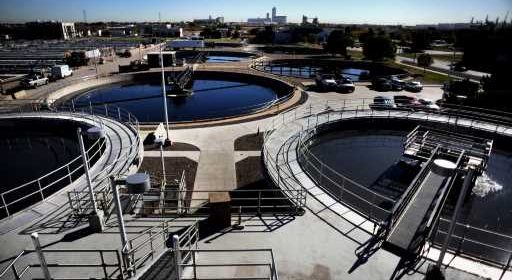Colorado’s COVID cases rising; Durango public health sounds alarm

Colorado’s COVID-19 cases continue to rise, and one public health agency warned its constituents that they should consider taking precautions again.
San Juan Basin Public Health, which serves La Plata and Archuleta counties, urged residents to make sure they’re up to date on their vaccines and boosters, and to consider masking in public if they’re at a higher risk of severe COVID-19.
Concentrations of the virus in Durango’s wastewater have more than doubled in 16 days, to levels last seen in early February, the department said in a news release.
While fewer people are vulnerable to severe illness than were before, it’s still a good idea to take some precautions when cases are rising, said Talia Quandelacy, an assistant professor of epidemiology at the Colorado School of Public Health.
“Preventing infection is still really important, because of the potential long-term consequences,” she said.
Data from the state’s wastewater monitoring dashboard showed levels of virus comparable to late December, when the omicron variant was starting to take off, in Boulder, Broomfield and the Platte/Central system, which serves much of Denver and eastern Jefferson County.
The wastewater data makes it clear that infections are rising, but it’s not precise enough to say that the same number of people in Durango are infected now as were in February, said Quandelacy said.
Since infected people shed the virus in their stool even if they don’t have symptoms, checking wastewater captures infections in people who aren’t getting tested. But it’s also a “snapshot,” and can be skewed as people visit and leave a community, she said.
“It’s useful to use as a proxy for that there are more people getting infected,” she said.
Statewide, cases increased by about 31% compared to the previous week, with 7,299 confirmed new COVID-19 infections reported in the week ending Sunday.
The percentage of tests coming back positive also continued rising. Colorado’s positivity rate averaged 7.45% over the week ending Tuesday. While that’s not nearly as bad as at the worst point in January, it does signal the state may not have a complete picture of how widespread the virus is.
Active outbreaks in Colorado nursing homes and assisted living facilities, which have been bellwethers in previous waves, rose by 33, to 98. That erased about a month and a half of progress. Outbreaks went down in schools, however, and remained relatively stable in other settings.
Hospitalizations of people with COVID-19 in Colorado rose only slightly, however, from 110 last week to 116 on Tuesday. The Colorado Department of Public Health and Environment updates hospitalization data once a week, making it harder to see patterns.
Colorado is fortunate that hospitalizations aren’t rising faster, as they are in some northeastern states, Quandelacy said. It’s not clear if that’s because of some difference in who’s getting infected — if the virus happened to hit unvaccinated people or those who haven’t been boosted in some places — or if it could reflect that the BA.2.12.1 variant is more prevalent there.
It’s clear that BA.2.12.1 is more contagious than its cousin variants, but so far there’s not much data about whether it is more severe or better at evading the immune system, she said.
Colorado’s still in the low category under the Centers for Disease Control and Prevention’s newer COVID-19 framework, which emphasizes hospitalizations. Much of New York and New England is at the medium or high levels, however.
“That’s really suggesting that people are getting sick, and sick enough to go to the hospital, in some of these locations,” Quandelacy said.
Nationwide, cases are at late-July levels, according to data compiled by The New York Times. Hospitalizations are up in all but 12 states, but so far have only reached early-July levels. Admissions to intensive-care units for the virus remain near all-time lows, though they’ve ticked up in recent days.
On Wednesday, the American Hospital Association and other health trade groups asked the U.S. Department of Health and Human Services to extend the COVID-19 public health emergency again. The emergency declaration gives health care providers greater flexibility, and allows people covered by Medicaid to stay enrolled without having to prove their eligibility again.
“We understand Americans are frustrated with the pandemic and the related ongoing public health measures resulting from it. Health care providers and others across the country’s health care infrastructure are exhausted as well,” the letter said. “We have learned, however, that COVID-19 and its variants take full advantage when we let our guard down.”
Source: Read Full Article